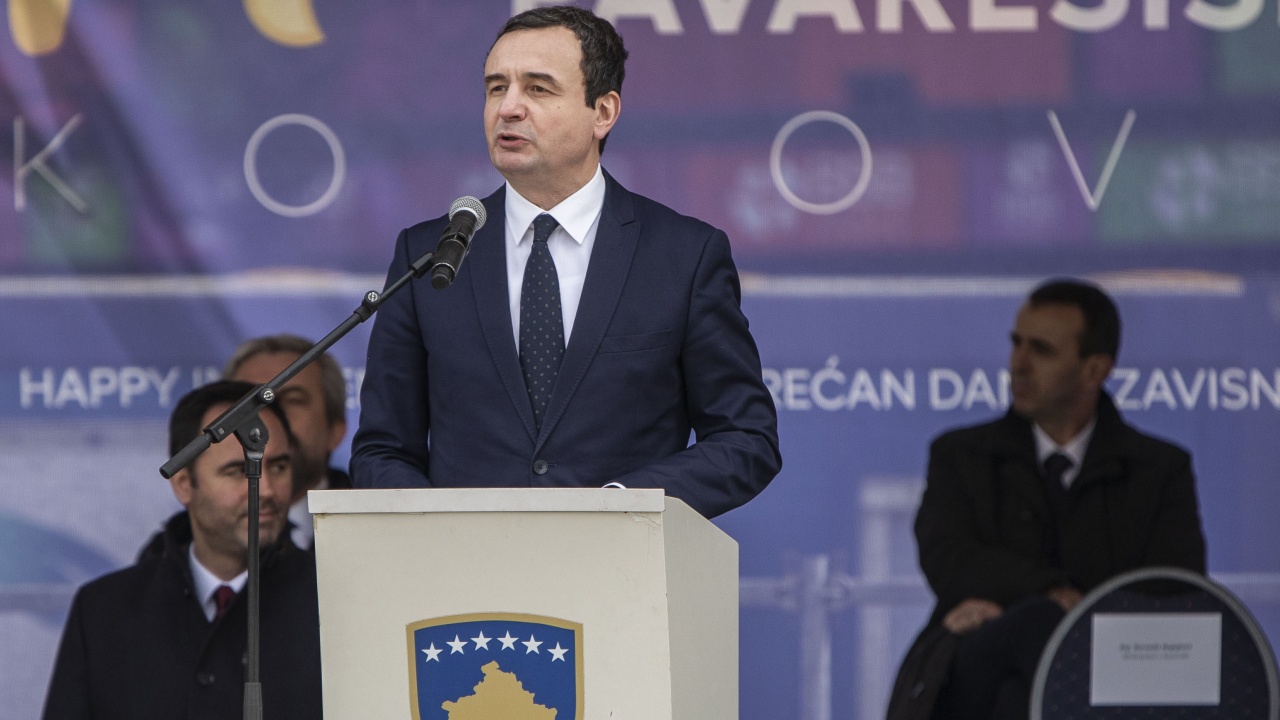Listen to the news
Kosovo Prime Minister Albin Kurti announced that more Kosovo police will be deployed in the north of the country, populated by Serbs, because of the incidents there yesterday.
"Criminal groups have increased their attacks in Northern Kosovo.
They know their end is coming.
The government of Kosovo does not negotiate with them and does not tolerate them.
The bombs they throw, the bullets they fire and the masks they wear are a sign of their political and popular impotence.
"Because of these crimes and armed attacks north of the Iber River, we will provide more Kosovo police because there will be an investigation and prosecution of these criminals who are paid by Serbia," said Kurti, quoted by BTA.
"The numerous violations of the law will not be forgiven, and the tendencies towards criminal destabilization will fail," the prime minister also pointed out in Pristina.
The division in the four municipalities in northern Kosovo, according to Kurti, is not between Serbs and Albanians, but between criminal groups and citizens.
Tensions escalated in northern Kosovo yesterday.
Kosovo police said explosions and gunshots were heard as they escorted representatives of the central election commission on a visit to municipalities in northern Kosovo.
Sirens and explosions are heard in the Serb-populated part of Kosovska Mitrovica
Kosovo media reported that protesters destroyed the offices of the electoral commission in Zubin Potok.
Serbian mayors in northern Kosovo, along with local judges and around 600 police officers, resigned last month in protest at the Kosovo government's decision to replace Serbian car license plates with Kosovo ones.
Although Pristina agreed to delay the introduction of the new numbers for several months, the Serbs have not yet returned to their positions in Kosovo's institutions.
Kosovo's election commission has scheduled municipal elections for Dec. 18 in Kosovo's predominantly Serb north, but most Serb parties in the Balkan country have opted out.
About 50,000 ethnic Serbs living in northern Kosovo refuse to recognize the Kosovo authorities and continue to consider themselves part of Serbia.
Kosovo is recognized as an independent state by about 110 countries, but not by Serbia, Russia, China and five EU member states (Greece, Cyprus, Romania, Slovakia and Spain).
Belgrade and Pristina promised yesterday that they will remain committed to the dialogue to regulate their relations, which has been conducted under the auspices of the EU since 2013.
